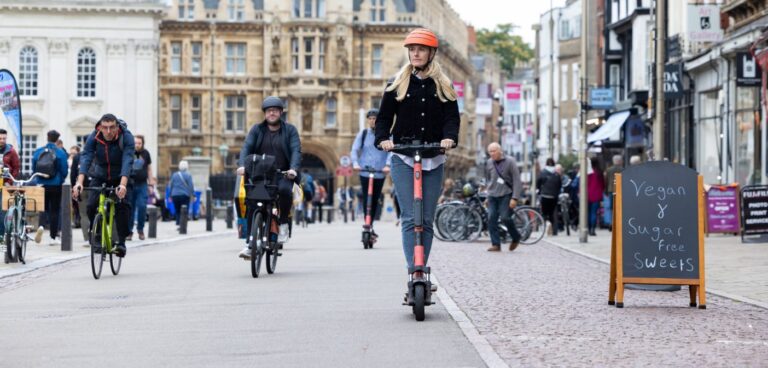Shared micromobility operator Voi has pledged to become climate positive across all its towns and cities by 2030.
The company’s co-founder Fredrik Hjelm committed the e-scooter company to this ambition today [08 November] at an International Transport Forum (ITF) event on decarbonising transport held as part of COP26.
According to the e-scooter company, it will aim to reduce more greenhouse gas emissions than its value chain emits, without relying on carbon offsets, while still growing as a business.
To achieve this, Voi plans to transition to fully electric operational fleets by early 2023. Its fleets and warehouses will be fully powered by renewable energy, and by 2023 Voi’s battery cells will be produced in Europe.
Additionally, Voi said it will work with suppliers to transition its supply chain to renewable energy and aim towards circular production by 2030.
As well as ensuring its own business is climate positive, the operator added it will continue to support public transport by acting as a first/last mile solution and aims to serve more suburban areas.
It will also work to protect active modes such as walking and cycling by supporting active mobility infrastructure.
The company noted its goal has always been to replace short cars trips by continuing to working with local communities, towns and cities to introduce e-mobility modes. In 2021, on average 16.3% of Voi trips replaced short car journeys.
Fredrik Hjelm, CEO and co-founder of Voi, said: “Voi’s e-scooters and e-bikes are already playing a critical role in cities in providing convenient and sustainable alternatives to cars. Climate change presents a serious threat to the livability of cities around the world and we want to do everything in our power to take action.”
Voi has operated a carbon-neutral service since January 2020 and its climate targets are verified by the Science Based Targets organisation. Voi is also a signatory of the UN-backed Business Ambition for 1.5°C campaign and a member of Race to Zero₂.
Hjelm added: “We want to go beyond carbon neutrality through offsets and become a climate-positive company. We’ll do this by implementing new climate measures such as sourcing European-made battery cells and circular vehicles.”





